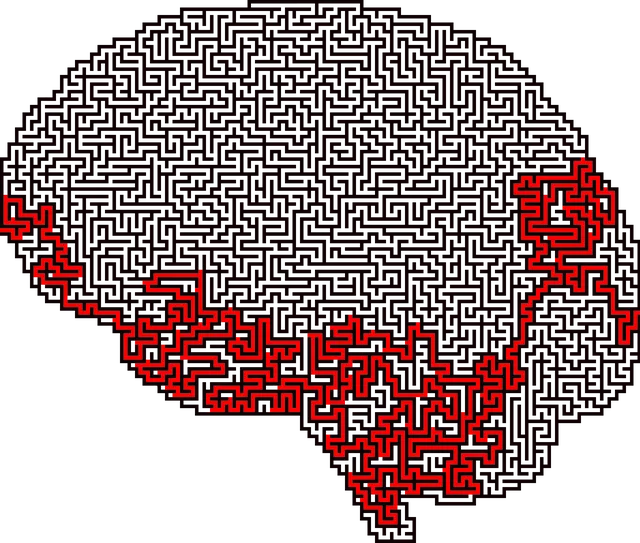The Arvada Kaiser Permanente mental health center emphasizes cultural sensitivity as a core component of its patient-centric care philosophy, aiming to bridge gaps in mental healthcare access and outcomes. By integrating Mind Over Matter principles and compassion cultivation practices, the center equips professionals with tailored communication strategies to address diverse cultural mindsets, traditions, and expressions. This individualized approach improves treatment effectiveness through culturally sensitive techniques like Emotional Regulation exercises and Self-Awareness practices, empowering patients from various backgrounds to navigate their mental health journeys successfully in an inclusive, safe environment. The center continuously learns and adapts, offering resources like Mental Wellness Journaling Exercise Guidance and Trauma Support Services to foster open dialogue and understanding, enhancing care outcomes and community engagement.
Cultural sensitivity is a cornerstone of quality care at Arvada Kaiser Permanente’s mental health center. This article explores how understanding cultural diversity enhances patient outcomes and therapies, while addressing challenges faced by clinicians in providing culturally competent care. We delve into strategies for integrating cultural awareness, emphasizing community engagement as a key driver for improved mental wellness outcomes. By examining these aspects, we aim to illuminate best practices for Arvada Kaiser Permanente and similar facilities, fostering inclusive environments that resonate with diverse patient populations.
- Understanding Cultural Diversity in Mental Healthcare at Arvada Kaiser Permanente
- The Impact of Cultural Sensitivity on Patient Outcomes and Therapies
- Challenges Faced by Clinicians in Providing Culturally Competent Care
- Strategies for Integrating Cultural Awareness in Mental Health Practice
- Enhancing Community Engagement for Better Mental Wellness Outcomes
Understanding Cultural Diversity in Mental Healthcare at Arvada Kaiser Permanente

Arvada Kaiser Permanente’s mental health center recognizes that cultural sensitivity is a cornerstone of effective care. In an increasingly diverse society, understanding and respecting various cultural backgrounds, beliefs, and practices are essential to providing inclusive and compassionate mental health services. This awareness extends beyond language differences, delving into the unique mindsets, traditions, and expression of emotions across cultures.
The center embraces Mind Over Matter Principles, integrating communication strategies tailored to different cultural contexts. Through training in compassion cultivation practices, healthcare professionals learn to create safe spaces where individuals from diverse backgrounds feel heard, understood, and supported. By fostering an environment that values cultural diversity, Arvada Kaiser Permanente aims to bridge gaps in mental healthcare access and outcomes, ensuring every patient receives the most relevant and respectful treatment.
The Impact of Cultural Sensitivity on Patient Outcomes and Therapies

At the Arvada Kaiser Permanente mental health center, cultural sensitivity isn’t just a best practice—it’s a cornerstone for positive patient outcomes. Incorporating an understanding of diverse cultural beliefs and values into therapy sessions allows mental health professionals to tailor their approach, fostering a deeper connection with patients from various backgrounds. This individualized care can significantly impact treatment effectiveness, enabling practitioners to address unique challenges faced by each client.
By recognizing the importance of cultural context, therapists at Arvada Kaiser Permanente can incorporate culturally sensitive techniques like Emotional Regulation exercises, Self-Awareness practices, and Confidence Boosting activities that resonate with individual patients. These tailored interventions not only enhance therapeutic outcomes but also promote a safe and inclusive environment where patients feel empowered to navigate their mental health journeys effectively.
Challenges Faced by Clinicians in Providing Culturally Competent Care

Providing culturally competent care presents unique challenges for clinicians working at the Arvada Kaiser Permanente mental health center and similar healthcare facilities. Navigating diverse cultural landscapes demands a deep understanding of patients’ backgrounds, beliefs, and values to ensure effective communication and treatment. Many clinicians struggle with offering tailored care, especially when dealing with sensitive topics like trauma, which can be influenced by cultural contexts.
For instance, a patient from a different cultural background might interpret and express emotional distress differently than someone from the clinician’s own culture. This can lead to miscommunication or even inadvertent biases in assessment and treatment planning. The Mental Wellness Journaling Exercise Guidance and Trauma Support Services offered by centers like Arvada Kaiser Permanente aim to bridge these gaps. These initiatives encourage patients to explore their cultural identities while fostering open dialogue with clinicians, ultimately enhancing mental wellness and trauma support within diverse communities.
Strategies for Integrating Cultural Awareness in Mental Health Practice

Integrating cultural awareness into mental health practice is a multifaceted approach that requires continuous learning and adaptation at the Arvada Kaiser Permanente mental health center and beyond. One key strategy involves actively listening to and valuing clients’ cultural narratives, allowing them to express their experiences in their own terms. This involves educating oneself about different cultural beliefs, practices, and expressions of distress to avoid assumptions or misinterpretations that could harm the therapeutic relationship.
Additionally, incorporating compassion cultivation practices and self-care practices can foster a more culturally sensitive environment. Mental health professionals can model emotional regulation techniques from diverse cultures, create safe spaces for clients to explore their identities, and integrate culturally relevant interventions when appropriate. By doing so, they not only enhance the effectiveness of care but also promote a deeper sense of understanding and connection between client and caregiver.
Enhancing Community Engagement for Better Mental Wellness Outcomes

At the Arvada Kaiser Permanente mental health center, community engagement plays a pivotal role in enhancing mental wellness outcomes. By actively involving diverse communities and incorporating their unique perspectives, the center ensures that its services are culturally sensitive and tailored to meet the specific needs of each individual. This approach not only improves access to care but also fosters trust and open communication, which are essential for effective treatment.
The Arvada Kaiser Permanente mental health center promotes community engagement through various initiatives, such as cultural events, educational workshops, and partnerships with local organizations. These activities provide a platform for individuals from diverse backgrounds to share their experiences, challenges, and needs related to mental health. By integrating this feedback into practice, the center offers more personalized care, including trauma support services and conflict resolution techniques that resonate with different communities. Additionally, by encouraging positive thinking and supportive environments, the center helps participants cultivate resilience and build strong coping mechanisms.
Cultural sensitivity is a cornerstone of effective mental healthcare, as evidenced by initiatives at Arvada Kaiser Permanente. By integrating cultural awareness into practice, such as those outlined in this article, mental health centers like Arvada Kaiser Permanente can significantly improve patient outcomes. Overcoming challenges through strategies that foster culturally competent care and engaging the community are essential steps toward ensuring every individual receives respectful, accessible, and tailored mental wellness support. This approach not only benefits individuals but also strengthens the overall health of our diverse communities.






